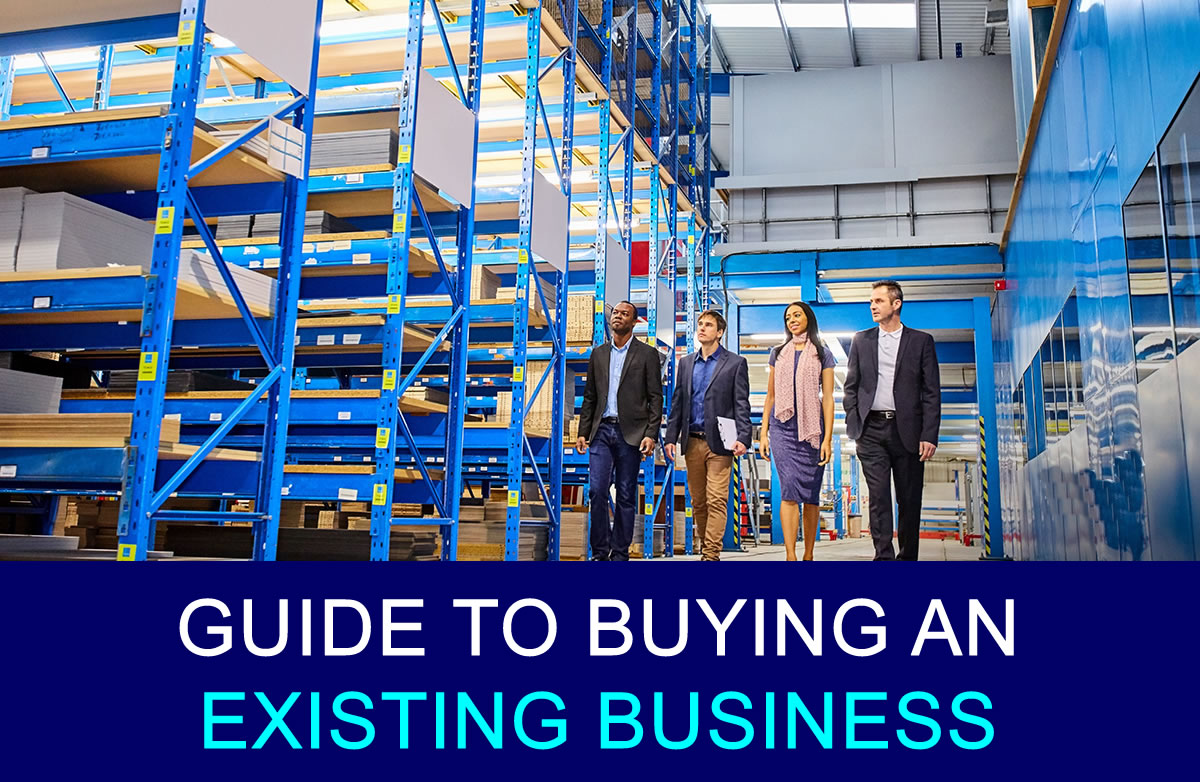
Buying An Existing Business
Buying an existing business is an exciting venture, but it is not a quick win. It requires research, dedication, funding, and other essential elements, and that’s where we come in to help. WeSellAnyBiz is UK’s leading business sales platform.
This guide runs through the most important stages of the buying process. It will be easy to follow and understand, so you can feel more confident in your decision and pursue your journey to business ownership.
There are many routes into business ownership, each with their own strengths and weaknesses; starting an enterprise from the ground up, investing in a franchise, or buying an existing business. This guide will offer valuable advice on why buying an existing business might be the best route for you.
Buying an existing business has many advantages! The business will have established foundations, a loyal customer base, marketing, and sales strategies, and a cashflow that you can improve or grow. It can also be easier to get funding to purchase the business.
However, there will be disadvantages you need to consider. For example, you’ll still need capital to support an existing cashflow, and you need to understand why the current owner wants to sell the business. It may simply be retirement, but it could also be liabilities like financial or operational struggles or a lawsuit.
That’s why conducting extensive research and taking due diligence seriously is essential to ensure you make a viable and pragmatic decision.

1: FINDING THE RIGHT BUSINESS TO BUY
When you’re buying an existing business, you will have to carefully select one that is right for you. This will be your decision to make, but here are some factors we recommend you analyse:
- Price
- Sales revenue or cash flow
- Age of the business
- The financial state of the business
- Location
- If the property is leasehold or freehold
- The physical state of the building
- If the sale will be owner financed
Once you begin making enquiries on the business, you should ask the seller detailed questions to understand more about the business. Some questions can be related to:
- The history of the business
- Its functionality
- Why the owner is selling
- The business model
- Annual gross revenues or net profits for the past 2-3 years
- How the business was valued
- The goodwill value of the business
- The assets and liabilities that will be included in the asking price
- The sale structure
By now, your shortlist of prospects may be one or two ideal businesses. Before you make an offer, you’ll need to complete a few more steps. These include valuing the business and raising finance to purchase it.
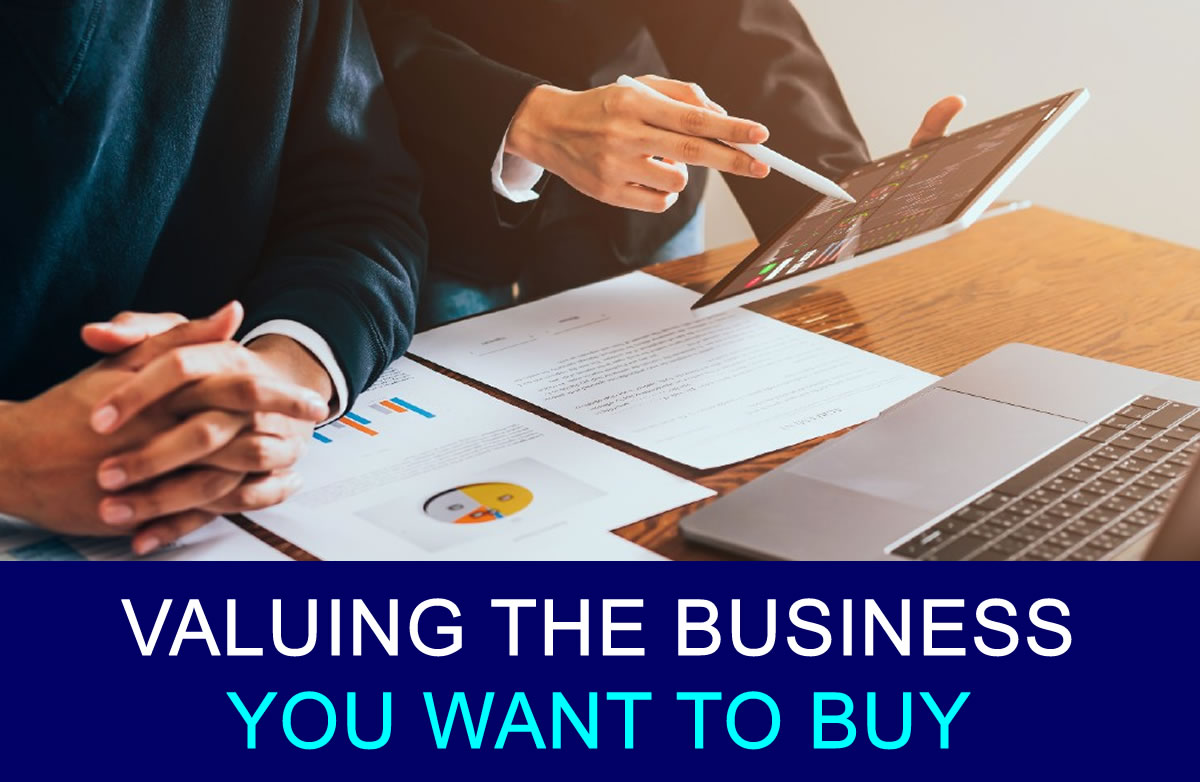
2: VALUING THE BUSINESS YOU WANT TO BUY
Valuing a business as a buyer and a seller is crucial. There are several methods to understand the worth of a business, and you may want to hire a valuation expert to support you.
In this section, we’ll briefly run through some of the valuation techniques you can use to understand the worth of the business you want to buy. Some valuation techniques you’ll use to value the business you want to buy include:
- Asset approach
- Seller’s discretionary earnings (SDE)
- Price to earnings ratio (P/E)
- EBIDTA
- Discounted cash flow
- Comparable analysis
A combination of these valuation techniques can be used to understand more about the worth of a business, including others. If you’re thinking of valuing a business on your own, you can use our quick Valuation Tool. However, we do recommend using a business transfer agent or broker who has expertise in business valuations.
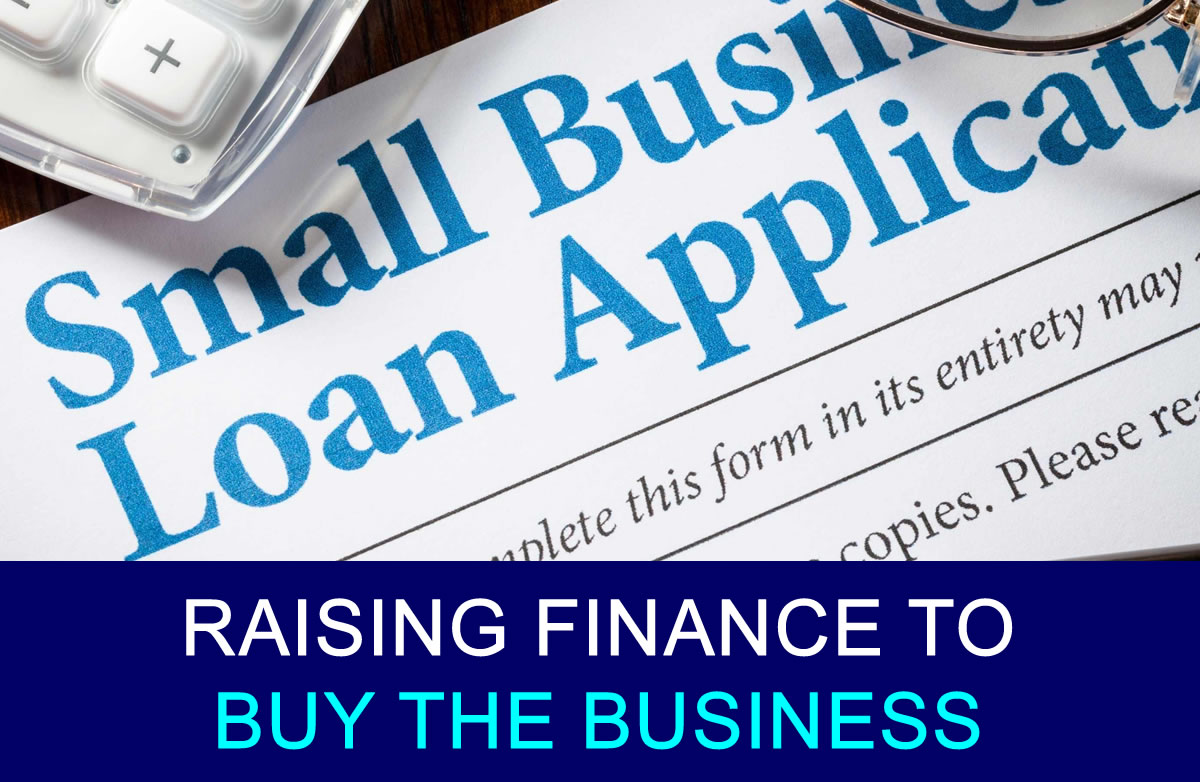
3: RAISING FINANCE TO BUY THE BUSINESS
When you enquire on a business for sale and firm up your interest, the seller will want evidence of a realistic financing plan from a buyer. Your personal circumstances and the nature of the business for sale will influence the availability and suitability of your options.
If you’d like to understand what options are available, here is a list of several types of financing options:
- Secured and unsecured loans
- Debt financing
- Equity financing
- Investors (angels, venture capitalists and private equity)
- Friends and families
Once you’ve found a business that matches your objectives, and you’ve secured funding for the purchase, it will be time to make an offer.
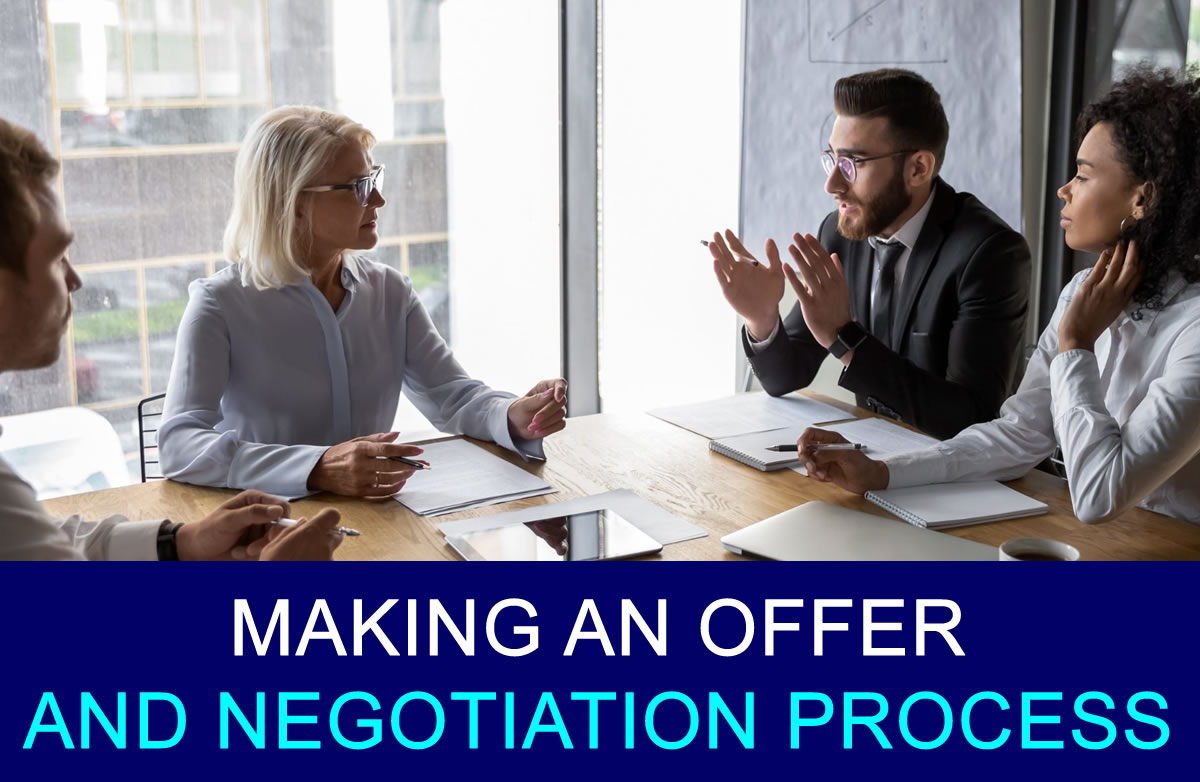
4: MAKING AN OFFER AND THE NEGOTIATION PROCESS
This is the point when your journey to business ownership will begin to feel real, and you’ll need to have a legal team in place to support the next process. When making an offer to the seller, you can start off with your lowest offer. Be prepared to justify why you’ve made this offer.
The negotiation stage exists because buyers and sellers will continuously negotiate a price that suits them both. Usually, there is the highest offer and the lowest offer, and negotiations will allow an ideal price to be agreed upon.
Negotiations are not a poker game where the winner takes all. It is about compromise, mutual trust, skill, and patience.
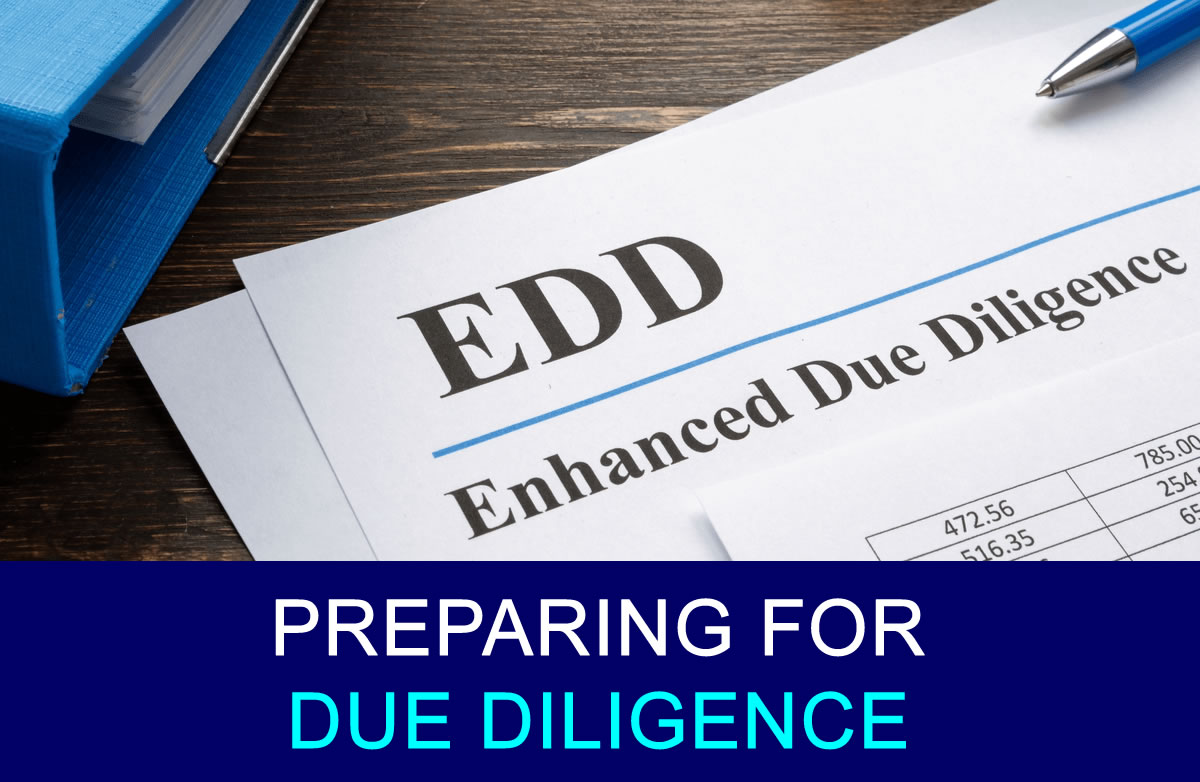
5: PREPARING FOR DUE DILIGENCE
At this point, you and the seller have agreed on a price and a sales agreement – which solidifies the provisional agreement and the transaction principles – will be signed. It is now time for the buyer to begin due diligence.
Due diligence is your chance to closely examine the business against claims made by the seller. If you discover previously undisclosed problems, you may wish to renegotiate terms or walk away from the deal.
It’s a considerable undertaking and one you shouldn’t begin without the help of an accountant, solicitor, or business broker.
There are three principal areas to focus on when you perform due diligence: commercial, financial, and legal. We’ll briefly run through them:
Commercial due diligence
This is your chance to get to know the market you’re entering, the business processes and the perspectives of employees, customers, and suppliers. Some elements that should be analysed are:
- Market size, growth, relevant trends
- Stock and inventory
- Perceptions of customers, suppliers, and employees
- Systems and processes
- Products and services
Financial due diligence
The most important financial consideration is finding a clear paper trail. If there are financial transactions or processes that haven’t been recorded by the current owner, you could encounter problems further down the track.
Scrutinise the following financial details:
- Past, present, and projected financial performance
- Business maintainable earnings (BME)
- Debtors
- Creditors
- Salaries and wages
- Insurance
- Bonds and guarantees
Legal due diligence
The legal side of due diligence is the trickiest to understand, with arcane terminology and obscure technicalities you may not be familiar with.
Legal proceedings are not unheard of in business and it’s not necessarily a red flag if the business has some legal issues in its past. But alarm bells should ring if the seller fails to disclose these problems.
Elements your legal team should investigate include:
- Trademarks and business names
- Legal claims and risks
- Past, present, or potential liabilities
- Contract terms
- Patents
- Claims and warranties
- Employee entitlements
The current owner will expect you to conduct due diligence and should be ready for you to talk to customers, employees, and suppliers, as well as investigate the business’s history and financials.
Don’t hold back. Ask all the questions you need to and get everything in writing so you can understand exactly what you’re getting into. If you’re satisfied with your findings, then it is time to close the deal.

6: CLOSING THE DEAL
Closing the deal is the final and most exciting step of all. You are now extremely close to becoming a small business owner.
To ensure the process runs smoothly, you should do the following things:
Set a firm time period
There is nothing more frustrating than a deal that drags on for months on end.
Make it clear to the seller that you would like to finalise everything by a certain date. This reduces the risk of the process stalling. Unless there is a reasonable explanation for any delay, ensure the process runs as smoothly as possible.
Keep building trust
Don’t do anything to damage the trust you’ve built throughout the process. Until the final contract is signed, the seller can still back out.
Think before you speak
By this point, you are well acquainted with the seller, but keep things professional and follow best practice, under the instruction of any advisers you’ve appointed.
Don’t be afraid to ask questions
By now, you may feel like you’ve asked so many questions that there can’t possibly be anything left to ask. But if you have any doubts at all, don’t be afraid to ask for clarification on any issue, big or small.
We hope this guide has been valuable to you, and we look forward to supporting you in any way we can!
HOW WESELLANYBIZ CAN HELP YOU
It’s clear that buying a business is not an easy task. It will take time and planning, conduct an accurate valuation, find the best advertising channel, get through the due diligence phase, negotiate documents, and finally, complete the sale.
The good news is that we are here to help. WeSellAnyBiz has been helping business buyers from around the world to buy small or large businesses for decades. We have exciting number of Business Available For Sale and new opportunities are becoming available on daily basis. We have a proactive customer care team to answer any of your questions.
If you wish to speak to us or have any questions you can contact our Business Sales Director on:
Safwan Ul Amin
T: 02037332315
E: [email protected]
WeSellAnyBiz
Sorry, the comment form is closed at this time.



